
Meet the Finalists for the World's Richest Short Story Award
Miranda July, Curtis Sittenfeld and More on Process, Advice, and Writer's Block
The winner of the 2018 Sunday Times EFG Short Story Award will be announced Thursday, April 26th. Below, the six finalists discuss their process, favorite stories, and more.
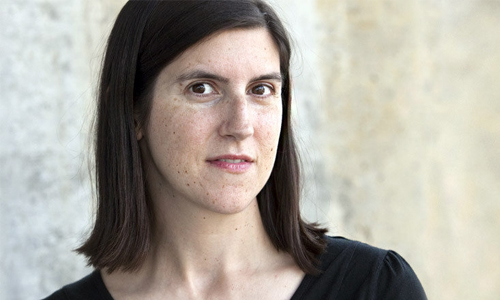
Curtis Sittenfeld
“Do-Over”
You Think It, I’ll Say It
What’s the best short story you read this year?
A terrific story by Jeffrey Eugenides called “Bronze” ran in the New Yorker in February. I love the combination of warmth, intelligence, and humor in his work.
What do you always want to talk about in interviews but never get to?
I’m sometimes tempted to turn around any uncomfortable, overly personal question and ask it of the interviewer—like, “No, really, if you can riff for a bit on YOUR sex life, I think people will find that very interesting.” [Ed. note: probably not.]
What time of day do you write?
I write for a few hours in the morning, after dropping my kids off at school. My brain is definitely sharper earlier in the day. On a good writing day, I continue writing into the afternoon, but more often I spend the afternoon returning emails or running errands.
How do you tackle writers block?
I would like to say by reading a great 19th-century novel or perhaps by going for a vigorous run. The truth, alas, is by descending into the sewer of Twitter. Even worse: when I do this while NOT having writers block but while my writing is going well!
Which books or stories do you return to again and again?
I love and admire Alice Munro’s stories, and they resonate for me in truly profound ways. She’s brilliant without showing off her brilliance—just such a sharp observer of the human condition and so matter-of-fact about the discrepancy between who we pretend to be and who we really are.
Which non-literary piece of culture could you not imagine your life without?
I feel this way about many kinds of non-literary culture, but I’ve had a long stretch of listening to the folk singer Brandi Carlile, so I’ll go with her here.
What’s the best writing advice you’ve ever received?
I’m probably paraphrasing, but my graduate school advisor, Ethan Canin, used to say something like: “Don’t write what sounds clever. Write what’s true.” In this case, he meant not what’s autobiographical but what’s emotionally honest. This advice hasn’t failed me in 20 years.
*
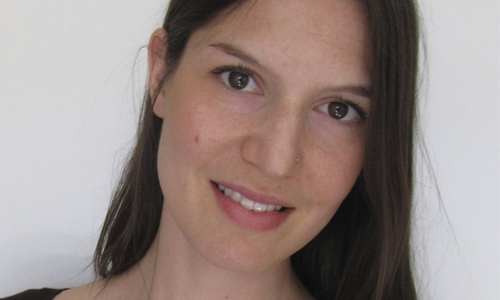
Courtney Zoffness
“Peanuts Aren’t Nuts”
American Literary Review
What do you always want to talk about in interviews but never get to?
Common lore about the writing life is that it’s a solitary process. And, inarguably, an author is responsible for generating his or her own words and stories. But there are lesser-discussed stages in the path to publication. My nominated story, for example, represents years of revisions, most of which were undertaken after a draft was read by one of a handful of first readers—fellow writers—on whom I rely (and who rely on me). So many writers I know have coteries of literary folks who help them do everything from brainstorm plot points to proofread. I feel immense gratitude for this literary sisterhood.
Which books or stories do you return to again and again?
I have a serious crush on We the Animals by Justin Torres, which seems to defy categorization. (Is it a novel? A short story collection? An epic prose poem?) The book offers simultaneous lessons in compression and abundance: Torres breathes lives into characters in a few swift strokes, while his lyrical, incantatory sentences can run wild. Some short stories to which I return for their psychological precision and indelible prose are Clare Vaye Watkins’ “Man O War” and Nam Le’s “Love and Honour and Pity and Pride and Compassion and Sacrifice.”
If you have a day job, what is it? How do you negotiate writing and working?
By day, I direct the undergraduate Creative Writing Program at Drew University in New Jersey. I teach fiction and nonfiction workshops and literature seminars, coordinate a prominent reading series, and advise a literary magazine, among other duties. While the job is demanding, it’s also satisfying in that it keeps me engaged with stories and essays and requires me to pay attention to how they’re constructed. I’m also fortunate to instruct bright, thoughtful students who invigorate conversations about these texts. As for generating my own work, I squeeze it in whenever I can—before or between classes, on my lengthy commute back to Brooklyn, in the evening after my children have gone to bed (if I’m not too exhausted). I’m most productive in the summer when I have the fewest professional obligations.
What’s the best writing advice you’ve ever received?
Go offline.
*
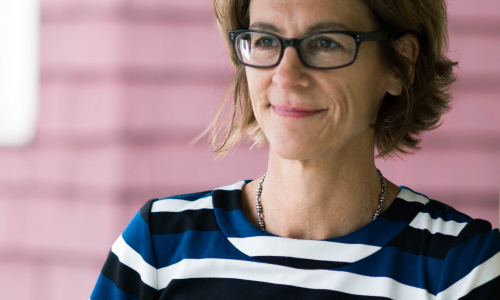
Molly McCloskey
“Life on Earth”
How do you tackle writers block?
I’m not sure I have ever understood what writer’s block meant—a kind of creative constipation? I’ve never had the experience of desperately feeling I had something to write/say, and then sitting down to write it and freezing. I have had fallow periods, and they’ve always struck me as healthy and necessary. I’m not someone who feels the need to be writing something all the time. For the most part I am working on something all the time, but I wouldn’t panic if I wasn’t. My problem is rather having the time to write the things I want to write. The other challenge for me in the past has been detoxing after a book; particularly after having written something in the first person, I can feel quite sick of my myself. And then not writing for a while is a helpful thing.
Which books or stories do you return to again and again?
I go back to Chekhov a lot, partly because I teach him, and every time I do, I’m struck anew by how much all short story writers owe him—we are all the children of Chekhov, whether we know it or not. He gave us permission to write in news ways, to lend to the smallest details and moments the attention they deserve, to write without resolution or answers.
If you have a day job, what is it? How do you negotiate writing and working?
I’ve had a lot of day jobs over the years, and I’ve often liked doing something that is completely unconnected to being a fiction writer. I like feeling part of the “real” world—the world that has nothing to do with literature, at least in any obvious or explicit sense. It puts things in perspective, and helps to offset the feeling that what I do as a fiction writer is too abstract, too disconnected from real life. Right now I’m helping to edit a nonfiction book about a convicted war criminal, which is completely fascinating work.
What’s the best writing advice you’ve ever received?
James Baldwin wrote that “one cannot risk love without risking humiliation.” This isn’t exactly advice and I certainly didn’t receive it from him personally, but it’s as true of writing as it is of love.
*
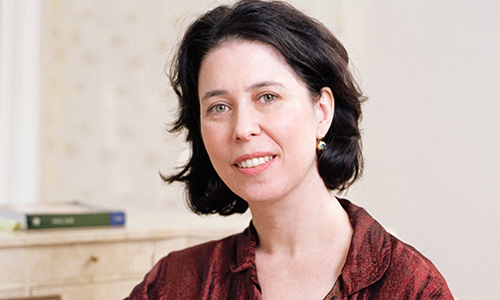
Allegra Goodman
“F.A.Q.s”
The New Yorker
What time of day do you write?
I do my best work in the morning. I love those hours when the whole day lies ahead. I have the most energy in the morning. Also, in the morning, I’m closer to my dreams, so if I’ve figured something out while sleeping I can use it before I forget!
How do you tackle writers block?
I believe that getting stuck is part of the creative process, and I’ve learned, over time, not to push too hard. When pages don’t come, I’ll write notes or draw, run errands, do other kinds of work, or just go for a walk and think. I’ve come to believe that the imagination is a cat, not a dog. You don’t expect your cat to come barking, jumping, and tail-wagging, every time you open the door. No. Like a cat, your imagination will approach you shyly, rub against your leg, fall asleep in odd corners, and then, when all is quiet, slip into the room and settle down next to you.
Which non-literary piece of culture could you not imagine your life without?
To modify the question a little: it’s other artists I can’t do without. I have a friend who is a composer, and a friend who is a painter, and I love nothing more than talking to them—comparing notes, listening to and looking at their new work.
What’s the best writing advice you’ve ever received?
When I was just starting out, I got my best advice from my father. He said, “Don’t let people define you as this kind of writer or that kind of writer. Define yourself. Follow your own interests. Try new styles and voices. Explore new subjects.” This advice has enriched my life. Treating writing as discovery, I’ve learned so much.
*

Miranda July
“The Metal Bowl”
The New Yorker
What’s the best short story you read this year?
Of 2018, so far, I really loved “The Intermediate Class” by Sam Allingham in the New Yorker a couple weeks ago. It really snuck up on me. I like any kind of art that initially seems sort of plodding and boring and pedestrian but then cracks open to reveal the soul of life.
What do you always want to talk about in interviews but never get to?
Like anyone else, most of my concerns are really small scale—food, things I want and don’t want, scheduling, what sunblock should I use. It’s actually insulting to be asked about these things (especially as a woman) but sometimes it happens that I wind up doing an interview like this and I find that I have a lot to say.
What time of day do you write?
I start in the morning, but who knows when it will really get going. On a hard day I spend all day not writing and then when I see I only have 15 more minutes left I spread my wings and open my heart and begin, writing as fast and free as I can with the security of knowing it will all be over soon. Not ideal, but better than nothing.
How do you tackle writers block?
Walk, walk, walk. Sometimes I walk for an entire day, making voice notes on my phone, on and off as they come. And if, worse-case scenario, I think of nothing during that day of walking then at least my body feels good and I sleep well that night. That said, I will find myself sitting at a desk at some point, and when I am there I try not to ask too much of myself. It’s a matter of staying in the chair and keeping on going, not brilliance. So I just look for any little way in, any writing task. It’s like being at some temple and trusting that taking out the temple’s trash is just as spiritual as ringing the gong.
*
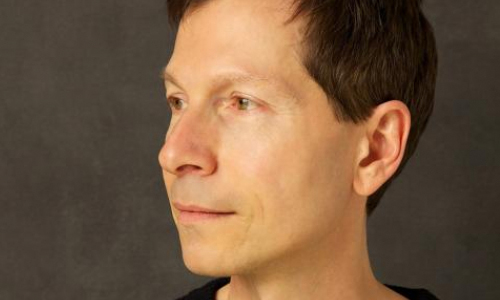
Victor Lodato
“Herman Melville, Volume 1”
The New Yorker
What do you always want to talk about in interviews but never get to?
Humor. I think my work is quite funny, but people seem to always focus on the serious stuff. I can’t really separate the two; I love the dance between merry and scary.
Which books or stories do you return to again and again?
So Long, See you Tomorrow, by William Maxwell. The novel breaks your heart not by giving in to an easy sentimentality, but by an uncompromising commitment to seeing people as they really are. Also, Marguerite Duras’s The Lover, a devastating story, but one in which the strange beauty of the language is, in itself, a kind of salvation.
Which non-literary piece of culture could you not imagine your life without?
I think this changes often, but right now I’m stuck on Belle and Sebastian’s second album, If You’re Feeling Sinister. A line that always slays me: “All that I ever wanted was to sing the saddest song, and if you would sing along I will be happy now.”
What’s the best writing advice you’ve ever received?
“The world will figure out a million ways to take time away from your writing. Steal it back. Be a little selfish.” I don’t remember who said this to me—maybe someone a little more selfish than I am—but I do try to follow this advice.



















